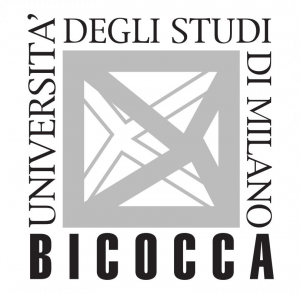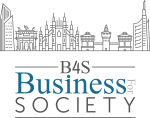5 fully-funded scholarships available
Project Scholarship 1
This research abstract outlines a comprehensive research agenda to advance our understanding and practice of sustainability governance.
Sustainability governance is a critical field where policy, economics, management, and ethics converge to address the urgent global challenges of environmental degradation, social inequality, and economic instability.
Sustainability governance seeks to balance economic development with social equity and environmental stewardship, aiming for intergenerational equity and resilience. It encompasses a spectrum of actors, from governments and international organizations to businesses, civil society, and communities. Effective governance necessitates integrated approaches that transcend traditional silos, fostering collaboration and coherence across sectors (for instance, social science versus natural science).
Key mechanisms include regulatory frameworks, market incentives, voluntary standards, and participatory processes, each with strengths and limitations.
Addressing the complex sustainability challenges requires innovative governance models that embrace adaptive management, inclusive decision-making, and knowledge co-creation.
The proposed research agenda encompasses several key themes that can be explored and deepened in the B4S Ph.D. program, such as (but not limited to):
- The impact of existing governance approaches on the environment, society, and governance's role in driving a sustainable future.
- Challenges of current ESG strategies, risk management, and reporting frameworks
- Pathways towards a purposed-driven system of governance for a business and society.
- Good governance and communication strategies to integrate sustainability issues into the core of business.
- Development of action plans for implementing sustainable governance in organizations.
- Good governance structures and incentive alignments to avoid ESG washing practices.
- Governing corporate ESG sustainability through artificial intelligence and large language models
Overall, this research agenda seeks to advance theoretical understanding, empirical knowledge, and practical insights into sustainability governance, aiming to inform policy, practice, and societal transformation towards a more sustainable and resilient future.
Format: maximum 5 pages, containing title, research proposal, reference literature, research
methodology, expected results.
Project Scholarship 2
This research project explores the dynamic intersection of innovation, digitalisation, and sustainability, recognising their critical roles in shaping a resilient and equitable future. As the global community faces unprecedented challenges, including climate change, resource depletion, and social inequities, the need for holistically integrated solutions that address these issues has never been more urgent. This project adopts a multidisciplinary approach, weaving together insights from technology, economics, environmental science, and social sciences to craft innovative strategies, both at the micro, meso and macro levels, that promote sustainable development.
At the core of our investigation is the understanding that digitalisation can act as a lever for sustainable innovation, enabling more efficient resource use, enhancing environmental stewardship, and fostering inclusive economic growth. We explore how digital technologies can support sustainable business models, contribute to circular economies, and empower communities to engage in sustainability practices. The project also critically examines the potential downsides of digitalisation, including e-waste, digital divides, and privacy concerns, proposing governance frameworks and ethical guidelines to mitigate these risks.
Through a blend of theoretical research and practical case studies, this project seeks to generate actionable insights and scalable solutions that align innovation with sustainability principles. Key themes include the role of policy and regulation in supporting sustainable digital transformation, the impact of digital technologies on sustainable consumption and production, and how digital platforms can facilitate collaborative approaches to global sustainability challenges.
The proposed research agenda encompasses several key themes that can be explored and deepened, individually or combined, in the B4S PhD program, such as (but not limited to):
- Sustainable Digital Transformation. Exploring the role of digital technologies in facilitating sustainable development goals, focusing on the potential of digitalization to enhance resource efficiency, reduce environmental impact, and promote sustainable business practices.
- Innovative Governance and Policy Frameworks. Examining the necessary governance structures, policies, and regulations that can support the integration of innovation and digitalization in sustainability efforts, including the development of ethical guidelines to navigate the challenges associated with digital transformation.
- Digital Inclusion and Equity. Addressing the social implications of digitalization, with a focus on bridging the digital divide and ensuring that digital innovation contributes to social equity, including access to technology, data privacy, and the protection of vulnerable populations.
- Circular Economy and Digital Platforms. Investigating how digital platforms and technologies can support circular economy models, enabling more sustainable consumption and production patterns through the optimization of resource use, waste reduction, and the promotion of recycling and reuse.
- Collaborative Innovation for Sustainability. Highlighting the importance of multi-stakeholder collaborations in driving sustainable innovation, including partnerships between the public sector, private sector, academia, and civil society to co-create solutions that address environmental and social challenges.
- Strategic Alignment and Organizational Adaptability in the Digital Sustainability Transition. This research topic investigates how organizations strategically align their operations, culture, and business models with the imperatives of digitalization and sustainability. It focuses on understanding the organizational transformations required to embrace digital technologies in a way that not only drives economic growth but also advances sustainability goals.
We aim to contribute to the body of knowledge on how innovation and digitalisation can be harnessed for the greater good, providing a roadmap for policymakers, businesses, and civil society to navigate the transition towards a more sustainable and digitally integrated future.
Format: maximum 5 pages, containing title, research proposal, reference literature, research
methodology, expected results.
3 University Scholarship
The recipient of this scholarship will carry out research in one of the research fields within Business for Society topics. In this case candidates can freely submit research project of maximum 5 pages, containing title, research proposal, reference literature, research
methodology, expected results.

